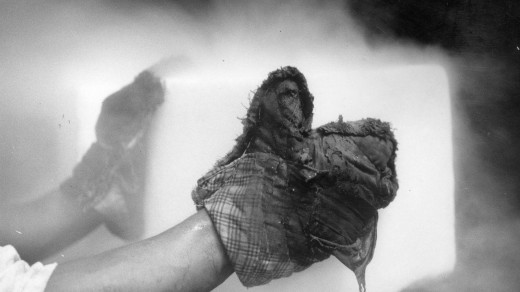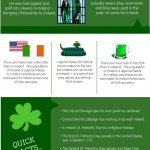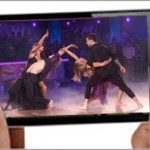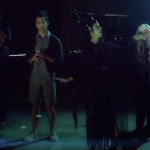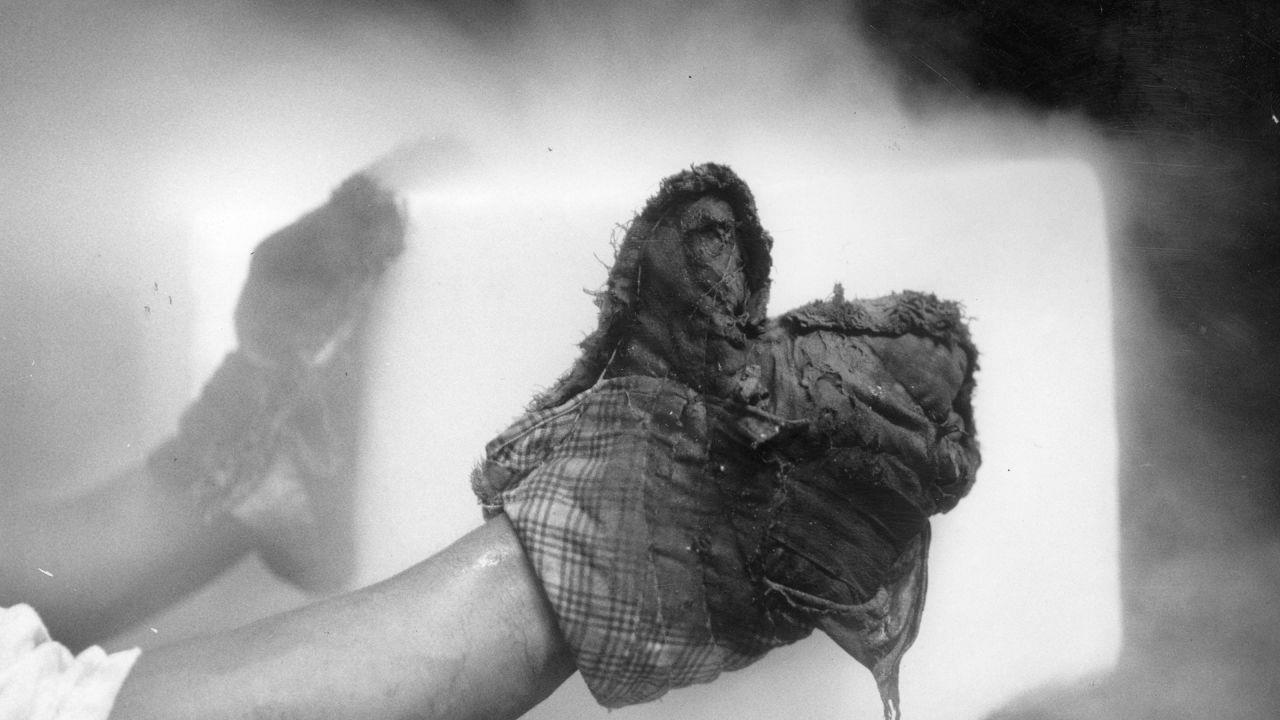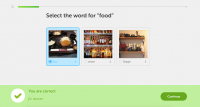There’s Nothing Fun About An Egg Freezing Party
Dispatch from a night of fertility talk.
The Hudson Hotel in midtown Manhattan is a swanky spot. The entrance opens up onto to a pair of escalators bathed in chartreuse light. The glowing stairs lead up to the lobby, which looks like Brooklyn barfed on a solarium: Ivy trickles down from the glass ceilings onto brick walls. Sturdy wooden surfaces abound.
“Let’s Chill!,” the egg freezing party, is downstairs in a windowless room, less stylish than upstairs; but the lighting and curtains are nice enough. There’s an open bar in back with wine, beer, and a signature cocktail. Servers periodically circle the room with hors d’oeuvres.
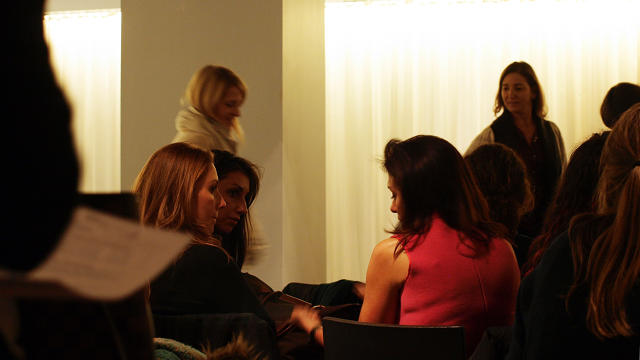
An egg freezing party does not involve any actual egg freezing. The events are information sessions on the process of conserving youthful eggs for a more convenient time in a busy woman’s life. Over the last six months they have popped up in cities with high concentrations of career women: New York, San Francisco, Los Angeles, and Boston.
The current (relative) popularity of the procedure, which began in the ’80s, is due to an advance in technology that has resulted in higher success rates, which in 2012 led the American Society of Reproductive Medicine to drop the “experimental” label. More clinics than ever have started offering it. And with Apple and Google now covering the “reproductive insurance policy,” the procedure is being hailed as a step toward gender equality in the workplace.
Still, information is scarce, which is where the parties come in. “We wanted to take the stigma off of egg freezing and make egg freezing cool,” Gina Bartasi the founder and CEO of EggBanxx, an organization that connects women with egg freezing specialists, told Fast Company. Since its first gathering this summer, EggBanxx has put on a monthly egg freezing party, including that night’s event. The booze and food are an attempt to make things more comfortable. “We wanted it to be hip and intimate and fun,” Bartasi added.
Let’s Chill! has an after-work networking vibe. One woman described it as “a scene.” Yet, none of the women I spoke with at the gathering came to party. “I just want to get some information. I don’t particularly love the open environment of it,” said a health care professional, who asked not to be named. (Every woman I spoke with didn’t want to be identified—so much for destigmatizing egg freezing.) Multiple other attendees agreed:
“It’s unappealing. I think it’s weird they’re taking pictures, but I’m totally interested in learning.”
“I literally thought it was a joke at first. I didn’t even know [it was like a party].”
“That wasn’t the point,” said another. “The point was to try and learn more.”
And, despite the bar, learning is the alleged primary purpose of these events. After all, egg freezing is an invasive, complicated, and expensive process—it costs between $10,000 to $15,000 per batch plus an additional $1,000 a year for storage. “I wanted to do a lecture before I went to see a doctor,” the health care professional told me. “I couldn’t find any in my area.” Google led her to the party, which is free (for now) and offers discounts on egg freezing services.
The notion that women lack information seems to unite different party promoters. “The idea just came out of my desire to promote fertility awareness— to educate women,” Dr. Aimee Eyvazzadeh, a reproductive endocrinologist who holds parties in the Bay Area, said. Her events also have heavy apps and drinks. “I don’t want another woman to utter: ‘I wish I would have known about this 10 years ago.'”
However, it’s unclear if a large, alcohol-fueled forum is the right format for learning.
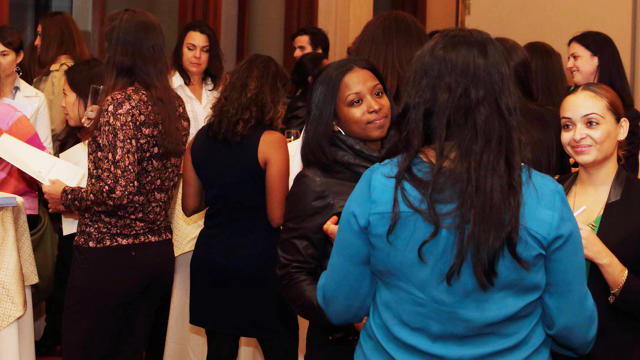
After 30 minutes of mingling, the women settle into their seats. An EggBanxx employee warms up the crowd with a Sex and the City– inspired routine. “By the end of the evening we’re all going to be talking about fallopian tubes and ovaries and it’s going to be fabulous,” the emcee says before introducing Dr. John Zhang, a reproductive endocrinologist who works with EggBanxx to get referrals to his practice. Dr. Zhang keeps the lighthearted tone going. “Freezing eggs is very different from freezing steak or frozen chicken,” he says, after telling the crowd that they are not patients, but ladies. “You don’t have a disease. You don’t need a treatment—it’s a part of your new lifestyle, just like you went to the spa or the gym.”
Dr. Zhang has one hour to talk egg freezing to a group of women with different interest levels, understandings of the process, and individual circumstances. Within 10 minutes, a question from the audience derails him from his history lesson. For someone who knows very little about egg freezing, the conversation quickly became confusing.
“What is the longest an egg has been frozen and have a healthy live birth baby? In the world, the longest is 10 years with the egg frozen in 2004,” he said.
“One in a thousand? What was the success rate?” a woman interrupts.
“Wow, good you ask all the questions for the rest of us here,” he says.
From there, he has trouble staying on track. Just as he starts defining terms like “vitrification”—the new and improved quick-freezing technology—someone asks a hyper-specific question, particular to her own situation. An hour later, he still hasn’t described from start to finish how it works.
For some, the session didn’t clear things up. “It was kind of jumping all over the place,” said one woman, a 37-year-old playwright. “I think I’ll feel more comfortable going to talk to someone one-on-one asking my own questions that make the most sense for me,” she said. Another 33-year-old professional added: “Honestly, I didn’t think it was very helpful. I thought they would go into more detail.”
EggBanxx is still perfecting the format. Bartasi told me that evening’s event “was kind of unusual.” Generally, there are three doctors who speak on a panel. It’s a better dynamic, Bartasi says.
The next month’s event returns to that format. It’s also at a swanky Manhattan hotel, the NoMad, and has a similar scene-y vibe. The signature Banxtini cocktail is served, in addition to wine, beer, and finger foods. Indeed, the three doctors do a much better job explaining the process. They are also more clearly peddling their services, which is the real impetus behind these events. EggBanxx makes money connecting patients with doctors. The alcohol might not draw people, but it leads to more impulse shopping: After an event about 20% to 25% of the people in attendance will book consultation appointments that night, according to EggBanxx. About three quarters of those people will show up, and about half of those people will go through with the procedure. In a room full of 45 women, about five will opt for freezing.
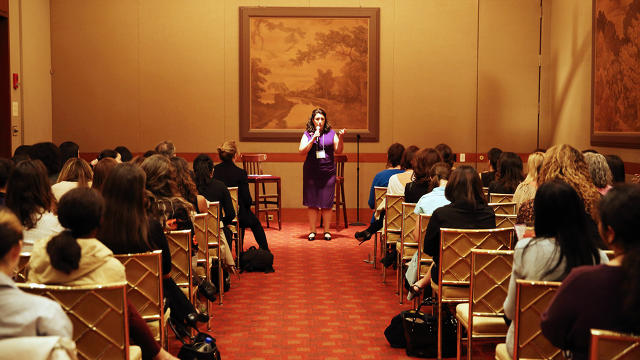
Bartasi is aware of the criticism. “There was some criticism that we were too swanky, somebody called us ‘fembots,'” she said. “Some journalists get paid on page views and I get that,” she added. EggBanxx tried a more subdued event at the Harvard Club. “The vibe of the event was definitely off. It seemed a little bit stifled,” Bartasi said. “We said, ‘Wow that was boring.’ We’ll take it back to hip and swanky. We’re going back to the NoMad.”
(364)

